I tested 3 Bluetooth turntables – is Sony, Pro-Ject or Cambridge the best?
Pitching three of the best BT record players head-to-head

Everyone (and by ‘everyone’ I really mean ‘discerning individuals’) enjoys vinyl as a music format, and not only because it’s capable of sounding sublime. There’s a tactility to LPs that you just don’t get from any other music delivery, and their sheer physical size allows for a much richer experience where artwork and other added-value bits and pieces are concerned too.
But there are downsides to vinyl too, of course, some a direct consequence of the positives I just mentioned. The physical size means they’re a pain to store, for instance. Then there’s the fact they’re so easy to damage – and don’t even get me started on the fact they have to be wired into a system before you can even get to hear them.
But lately some intrepid turntable manufacturers have been attempting to drag this ancient technology into the 21st century. The Bluetooth turntable has become a thing – a record player that only needs to be plugged into the mains, that can be positioned where you’d like to it go rather than where it insists on going, and that can then stream wirelessly.
Whether that's to a full-size system, to a pair of powered speakers, or to a single Bluetooth speaker, the choice is yours. No wires, no fuss – and finally, the dream of the product brochure (a picture of a turntable, all alone in a pristine apartment, with not a cable in sight) can become reality.
So here are three brilliant Bluetooth record players. Each represents the very best of what can be achieved at their respective price-points, and each one will allow you to enjoy all those vinyl benefits while taking away one of the most significant disadvantages.
T3's Top 3
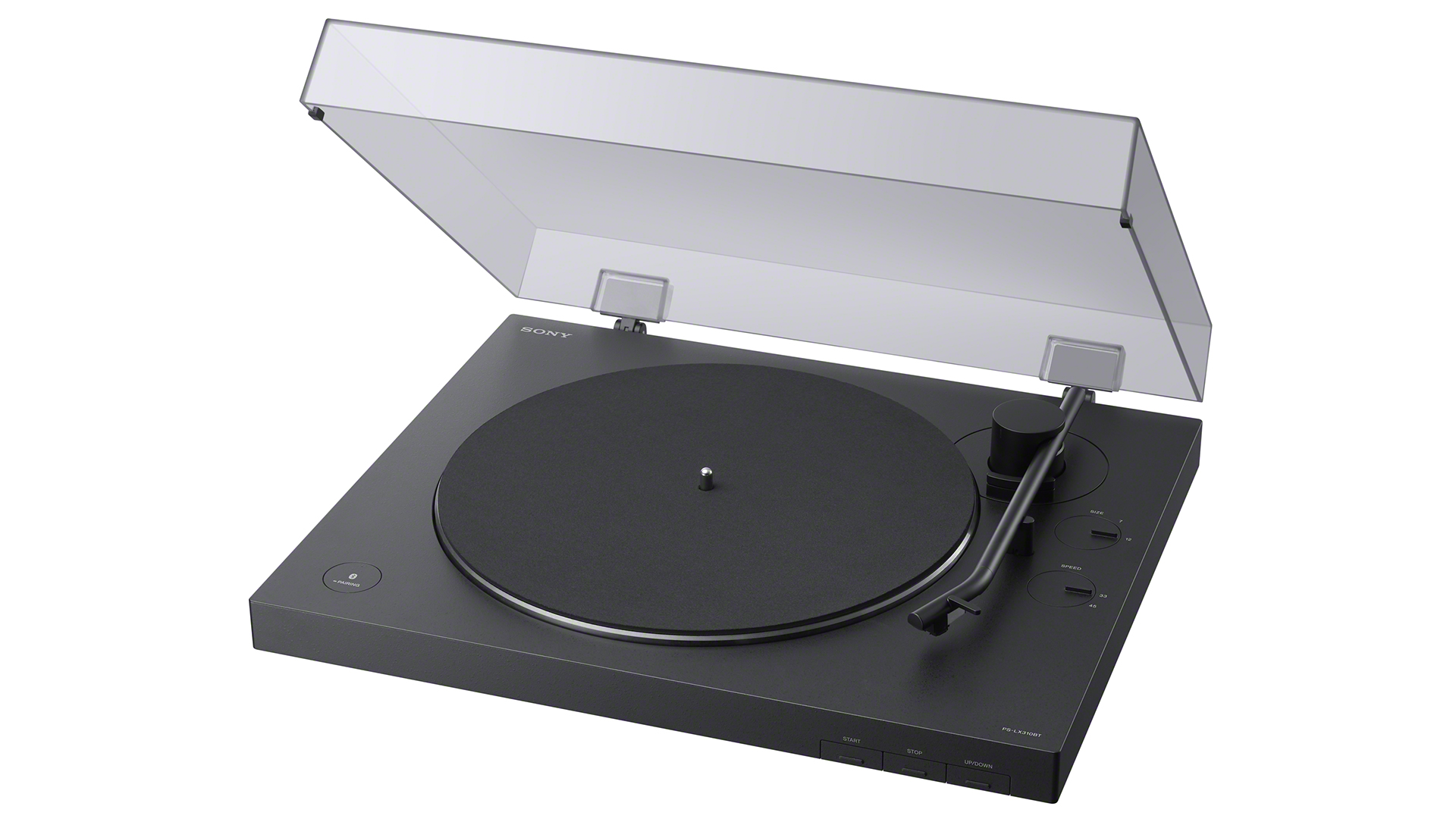
For not very much money at all, Sony will sell you a well-made, compact turntable that is a doddle to set up and operate, that’s fully automatic in operation, that comes complete with a pre-fitted and pre-adjusted cartridge, and that’s built and finished to a high standard. Most significantly of all, though, is the 310BT’s ability to stream wirelessly, using Bluetooth 4.2, to multiple receivers with absolutely no fuss whatsoever. It also features an integrated phono stage, so if it’s hard-wired into a system it can provide the necessary oomph to make itself heard.
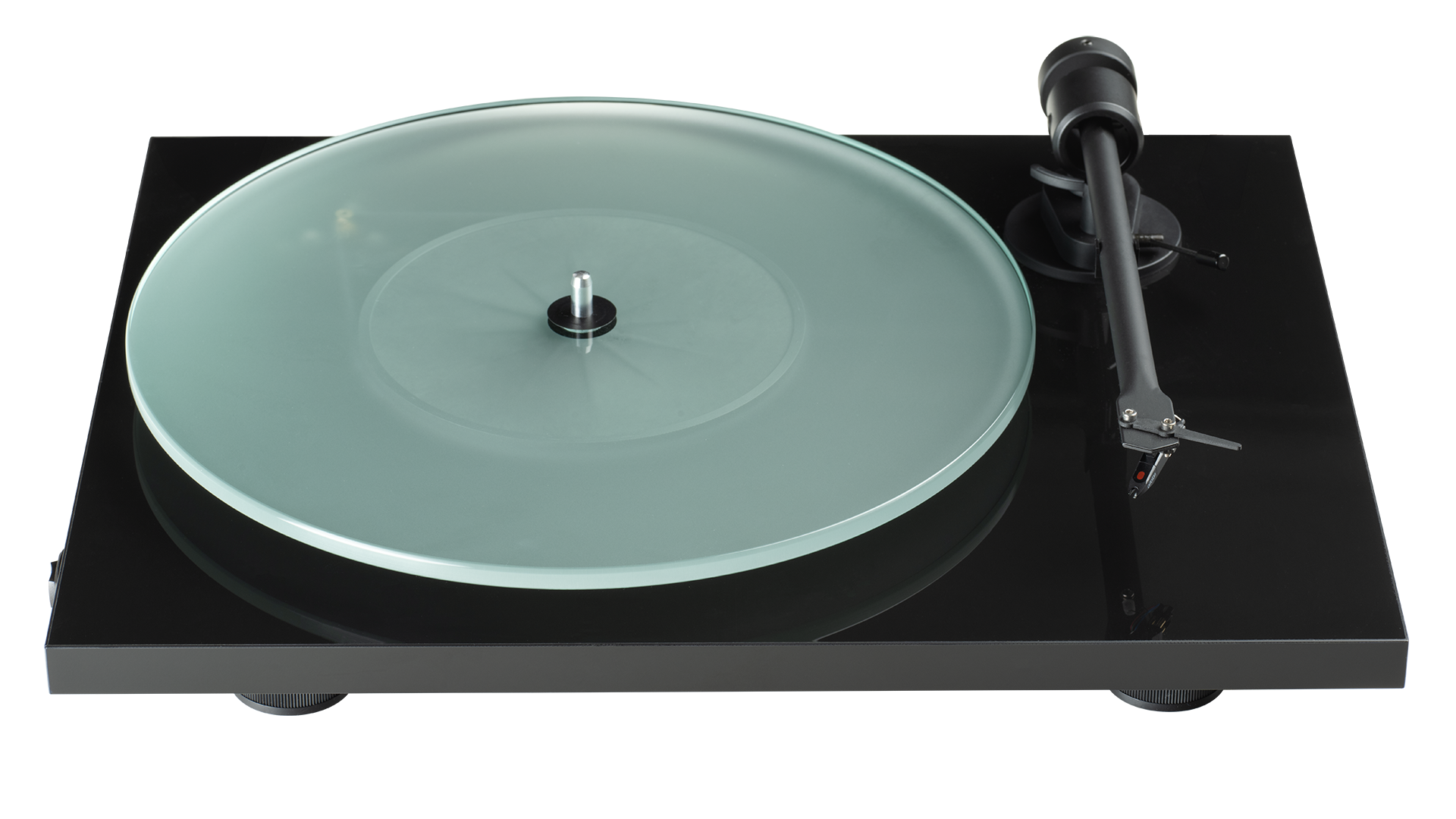
Once you’re ready to make a step on from Sony’s brilliantly accessible ‘beginner’ level, Pro-Ject has your back in the most straightforward and enjoyable style. Its T1 EVO range is celebrated for the remarkable value for money it delivers – and in ‘BT’ trim it adds a huge dose of convenience to the mix. All you need to do is fit the platter, mat, belt and dust-cover, and you’re ready to go – the integrated phono stage means the T1 will slot into any traditional system without issues, and Bluetooth 5.0 means wireless connectivity from quite a distance (even from a different room) is on the menu too. The selection of nicely realised finishes only adds to the appeal.
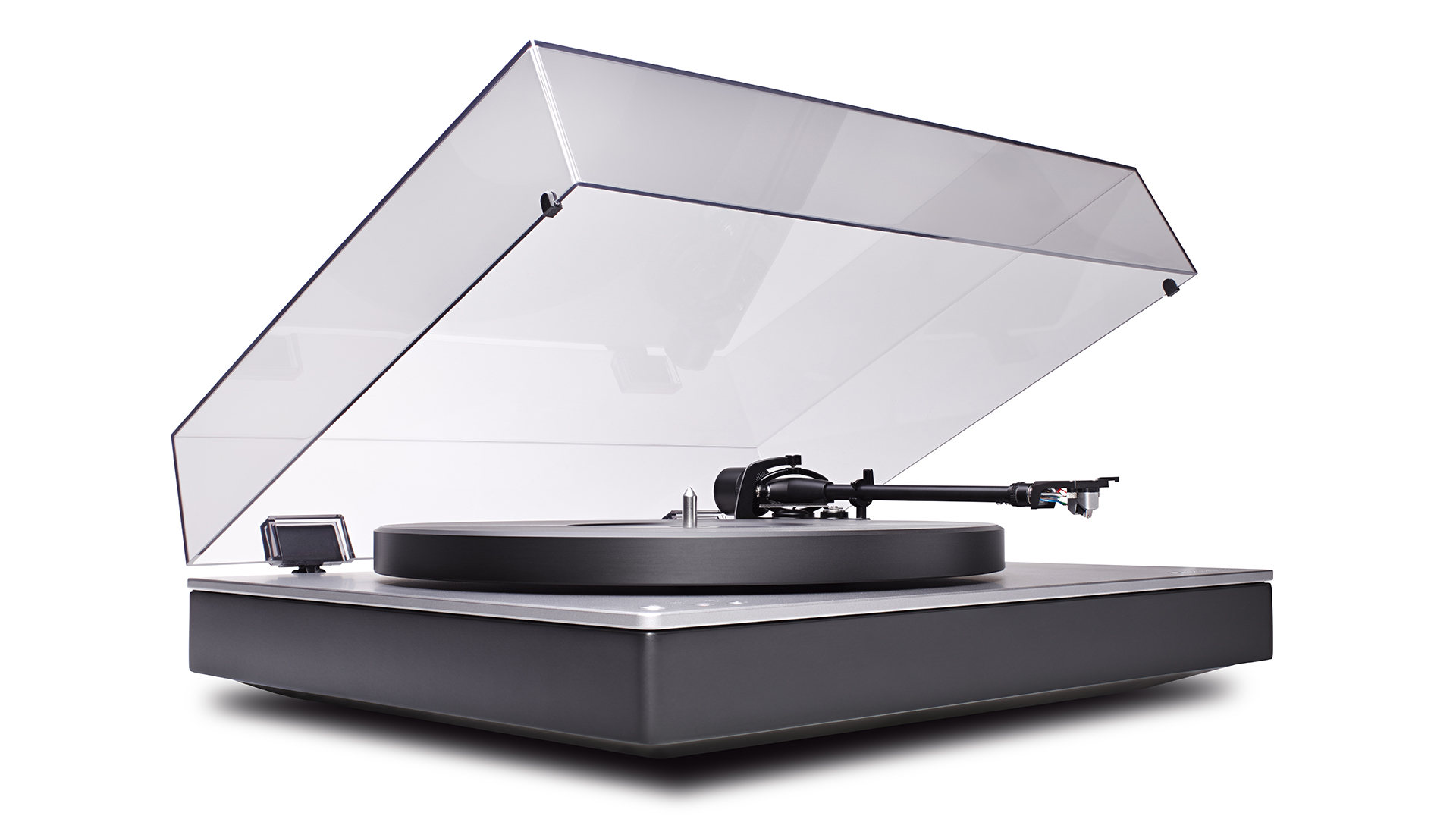
If you want to combine authentic high-end performance with supreme wireless convenience, look no further than the Alva TT v2. Cambridge has produced a substantial and beautifully made turntable here, fitted it with direct-drive technology for ultimate rotational stability, added a phono stage to make it as widely compatible as possible, and added in Bluetooth wireless technology to ensure your tunes are always accessible. The fact the Alva TT v2 feels, as well as looks, like a premium product doesn’t do any harm, of course – but it’s the combination of convenience and performance that really makes it a compelling option.
Sony v Pro-Ject v Cambridge: Pricing
To a lesser or greater extent, all three of these brands have had a part to play in the resurgence of vinyl as a credible music storage format – and each of these three products, which range in price from ‘very affordable’ to ‘quite considerable’, represents the best of what’s available at the money.
Sony
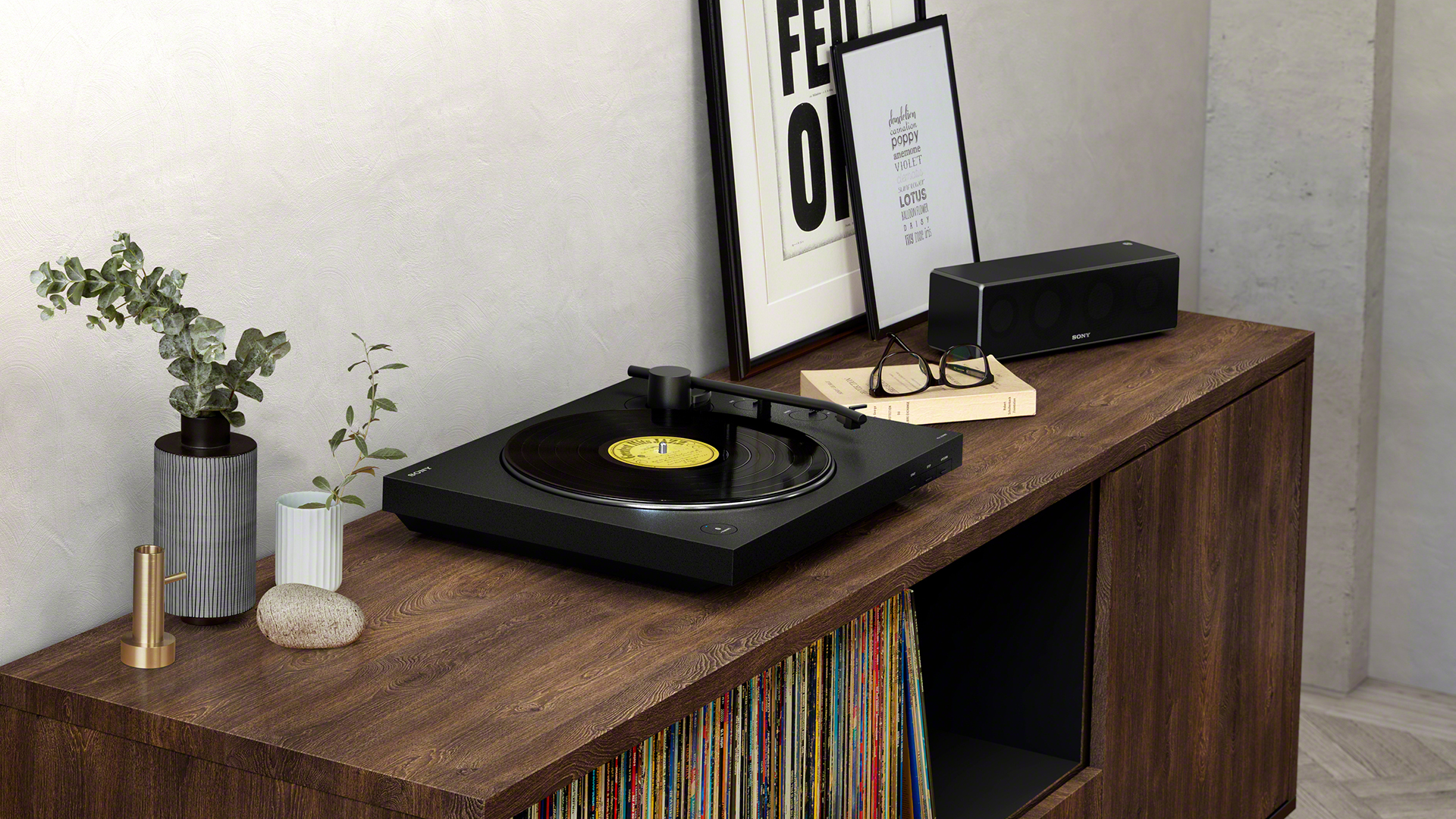
Given that it sells for £249 / $349, the PS-LX310BT looks like notable value for money right from the off. You can spend this sort of money on a ‘regular’ deck, of course, but the mild gains in outright performance you might make are more than offset by the simplicity and functionality of this Sony. And don’t let the budget price fool you into thinking any corners have been cut – the record player is built sturdily and to last.
Pro-Ject
All of the above applies to the £439 / $649 T1 EVO BT too – but the extra outlay buys you a little bit more of everything. Nicer, more expensive-looking finishes, a better tonearm and cartridge combination, a better-specified motor and bearing assembly, an altogether more upmarket feel. If you’re in the market for a Bluetooth-equipped record player, there’s a strong case to be made for this Pro-Ject representing the best value out there.
Get all the latest news, reviews, deals and buying guides on gorgeous tech, home and active products from the T3 experts
Cambridge
Put £1699 / $1999 Cambridge’s way for an Alva TT v2 and it’s apparent where your money has gone before you even plug it in. The 6mm slice of aluminium that forms the top-plate has the company logo punched in, and the standard of construction is absolutely beyond reproach. At every point, the Alva TT v2 is specified to the point of extravagance – and yet it remains a friendly, easy-to-use device that’s pretty much ready to go straight from the box.
Sony v Pro-Ject v Cambridge: What's Unique?
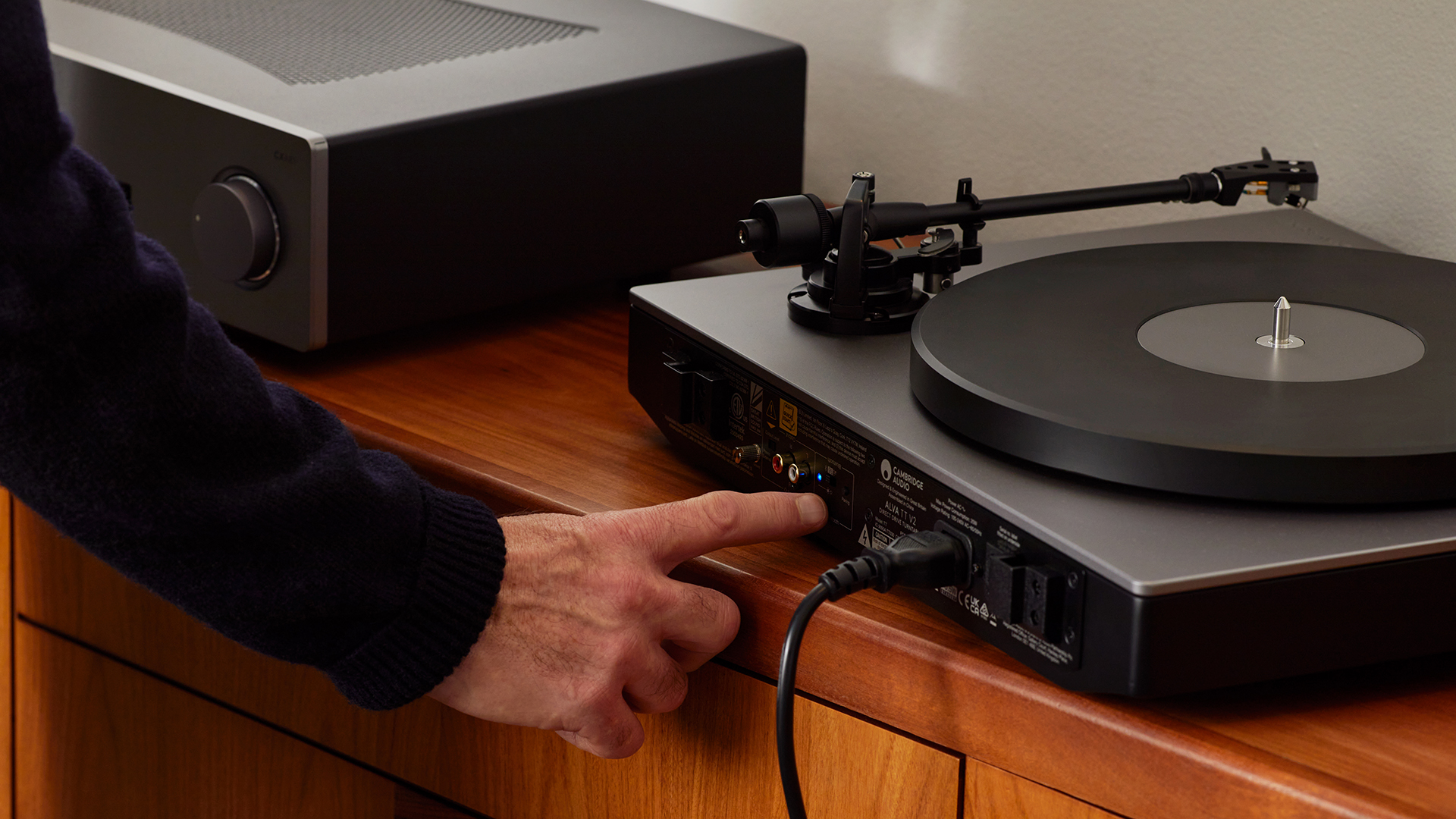
Sony
What makes the Sony PS-LX310BT special is that there’s really nothing about it that shouts ‘entry level!’. From its aluminium tonearm with pre-fitted and pre-adjusted moving magnet cartridge, via its automatic start, stop and return functionality, to its Bluetooth 4.2 multipoint connectivity (up to eight devices at one time!) with SBC and aptX codec compatibility, it reads like a more expensive product than it is. And that’s before you even start to consider its switchable phono stage…
Pro-Ject
The T1 EVO BT is not the first time Pro-Ject has managed to over-engineer a record player without over-asking where the price is concerned, but it might just be the company’s most startling example. Here’s a turntable featuring Bluetooth 5.0 wireless connectivity with full-on aptX HD codec compatibility, electronic speed-change, a pre-adjusted Ortofon OM10 cartridge attached to an 8.6in aluminium tonearm, and a heavy 8mm glass platter – and it costs how much?
Cambridge
‘Uncompromised’ is as good a word as any to describe the Alva TT v2. Unlike the two belt-driven turntables I’ve already discussed, the Cambridge uses a medium torque direct drive motor system in conjunction with a heavyweight platter – this offers complete rotational stability, and complete sonic stability as a consequence. Bluetooth 4.2 wireless connectivity runs to properly hi-res aptX HD standard, and a switchable phono stage means the Alva TT v2 is system-agnostic. A high-quality moving coil cartridge further sweetens an already very sweet deal.
Sony v Pro-Ject v Cambridge: Sound Quality
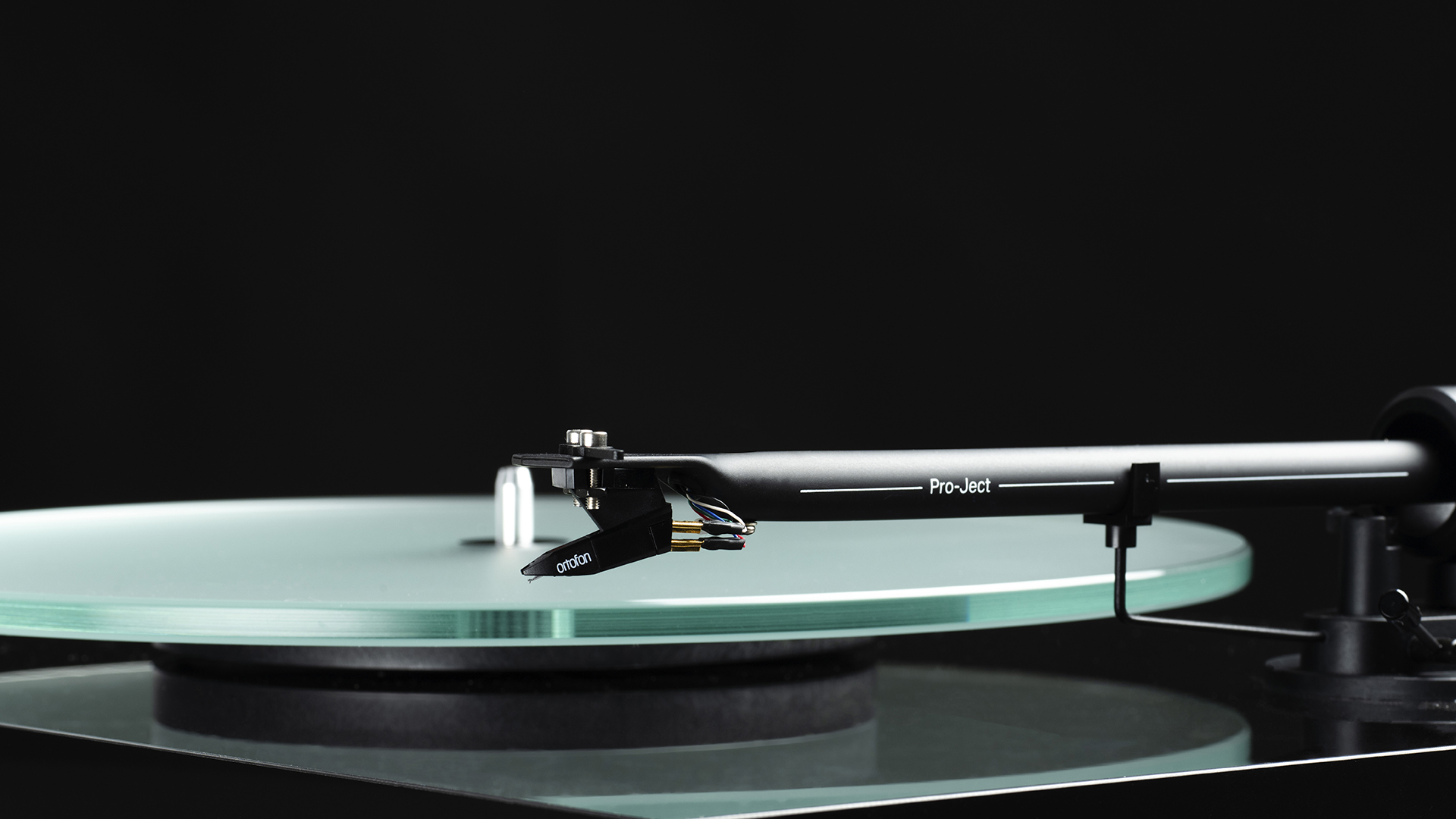
The beauty of this question is that it’s possible to answer “they all do” – and mean it. Each one of these turntables sounds, by the standards of its asking price, very good indeed.
Sony
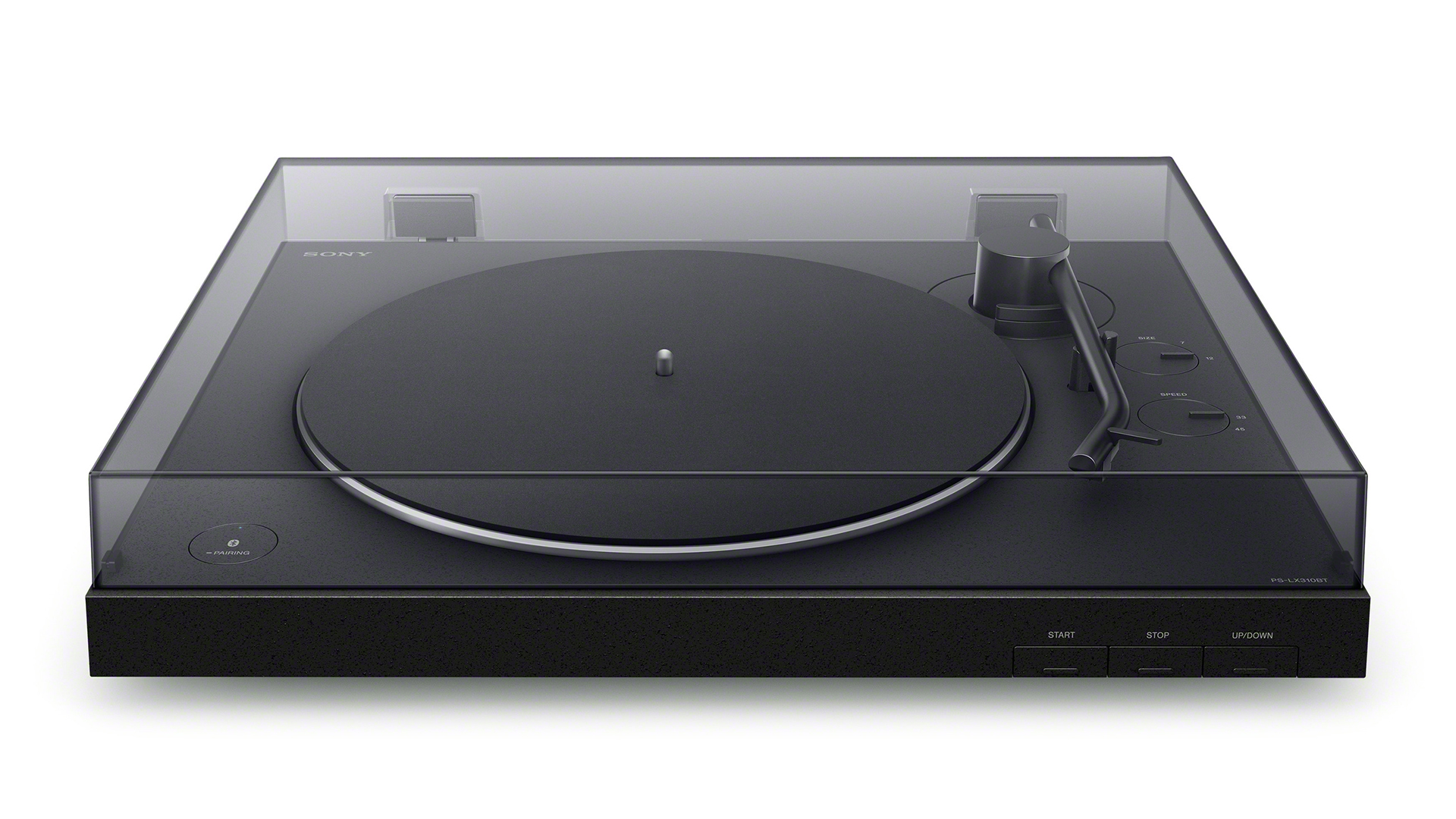
The Sony PS-LX310BT, for instance, is a born entertainer. A no-frills turntable at the same money may buy a little more where detail retrieval is concerned, but it can’t buy a sound that’s any more energetic, any more direct, or that carries any more momentum. The Sony is a punchy little number, and expresses rhythms with real confidence. If it’s a good time you’re after, you’ve come to the right place.
Pro-Ject
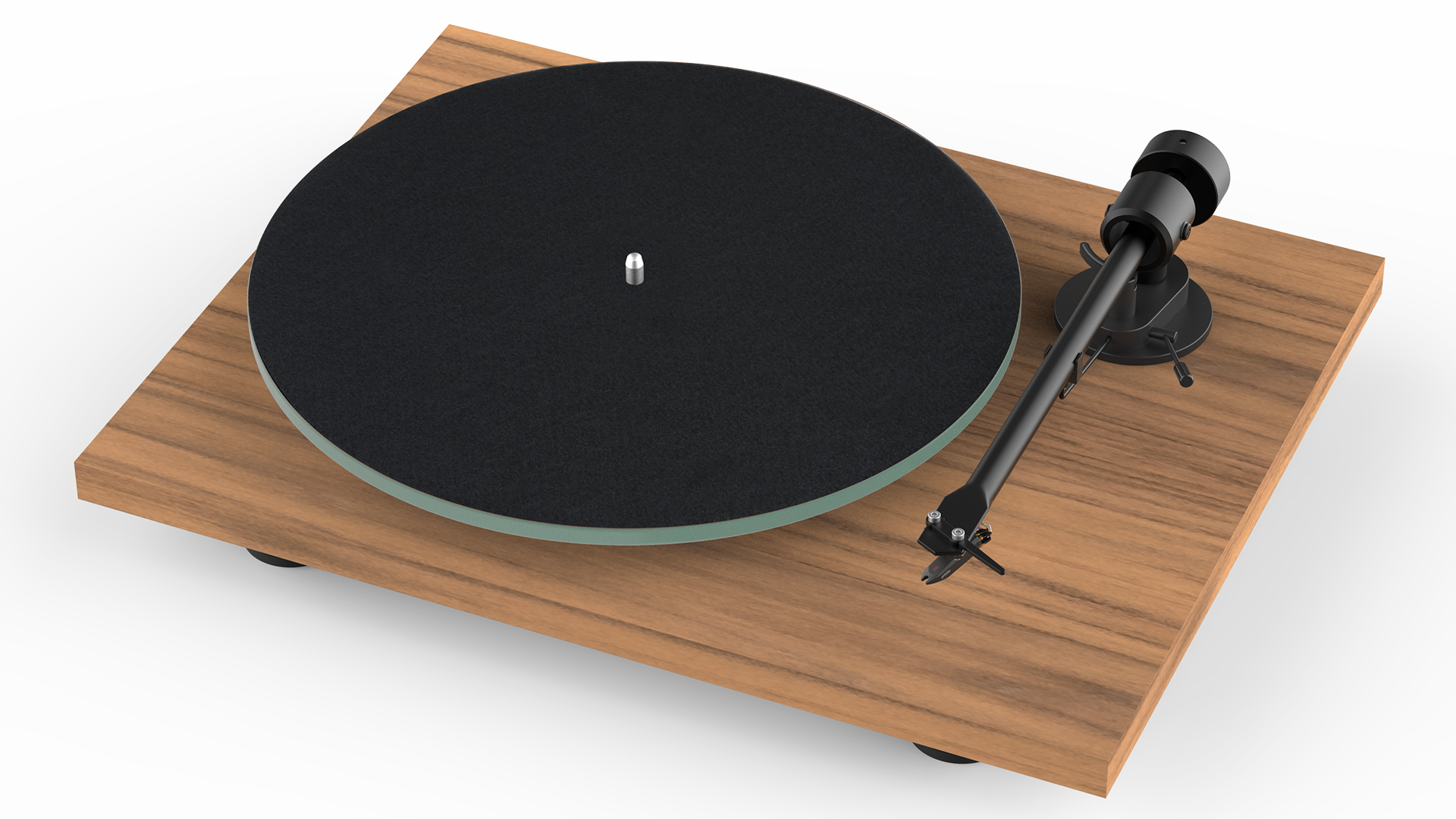
Spending a chunk more than Sony money on the Pro-Ject T1 EVO BT brings numerous and obvious improvements where sound is concerned, though. Those details levels, for example, step onto the point that you can be sure you’re getting all the information contained in the vinyl groove. There’s a fair bit more dynamic heft to the Pro-ject sound too, and when the going gets quiet this turntable is able to keep the spaces and silences nicely dark. It’s perhaps not as out-and-out vigorous a listen as the 310BT, but what it (slightly) lacks in drive it more than makes up for when it comes to sonic poise.
Cambridge
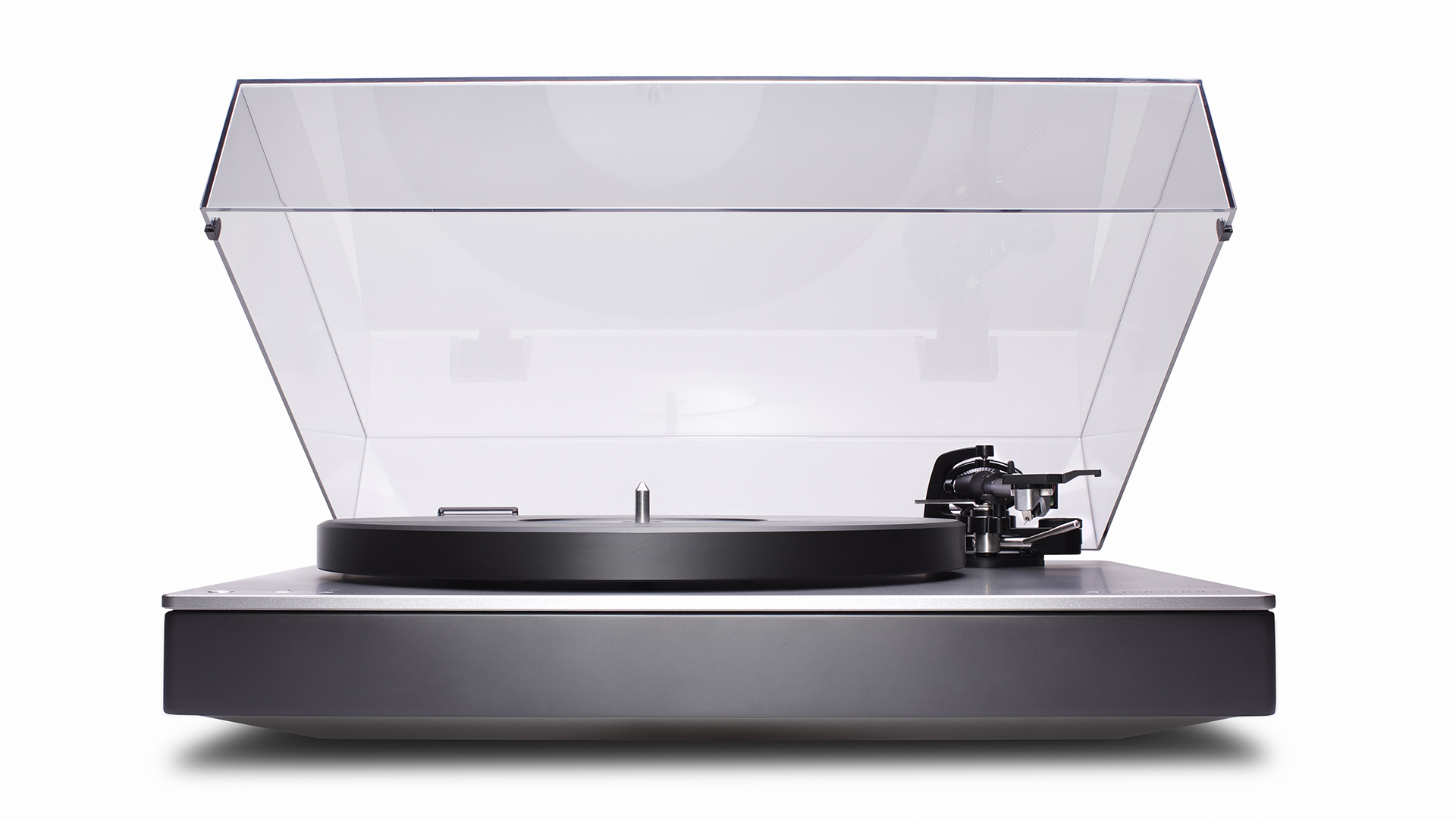
The asking price may demand that the Alva TT v2 be a decent device, but it doesn’t automatically follow that an expensive record player must be a good record player. This Cambridge machine, though, has what sporting types like to call ‘an all-court game’. It creates a big, well-defined soundstage and can unify the participants on it into a real sense of ‘performance’. It hits hard, but with great control. It’s dynamic enough to put huge distance between the most and least intense moments in a recording, and it’s deft enough to identify even the finest details as it does so.
Sony v Pro-Ject v Cambridge: Which wins?
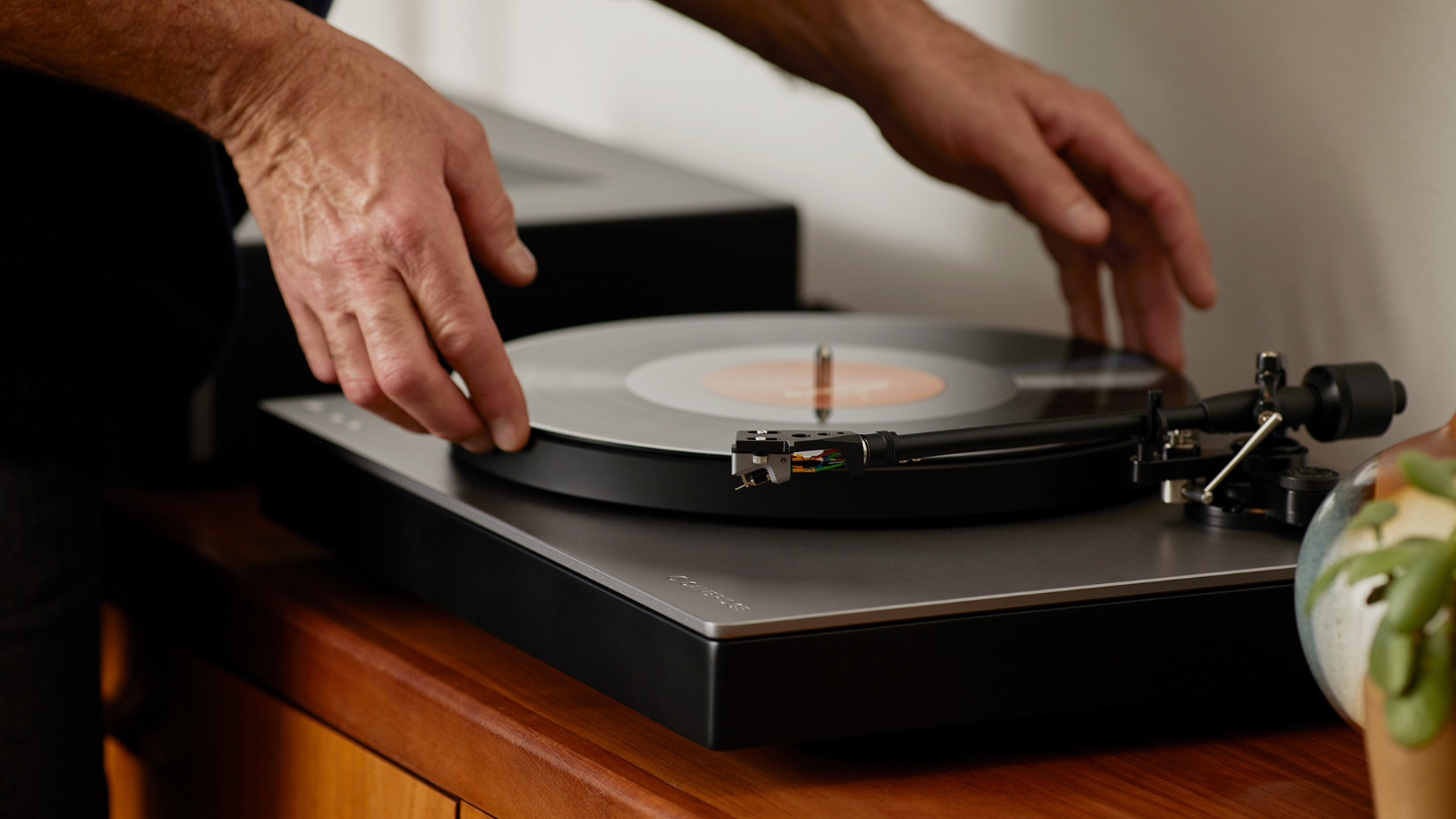
‘Overall’? Well, overall the best record player here is the Cambridge Alva TT v2 – it sounds biggest and boldest, it has the most to say where transient details are concerned, it communicates fluently through the midrange, and it lays out a soundstage in the most explicit manner imaginable.
Even without the bells and whistles of its Bluetooth connectivity and integrated phono stage, this is a fine-sounding turntable that will reward the listener for year after year.
Everything’s relative, though, and the fact is that a couple of turntables costing roughly a quarter and a fifth of the Alva TT v2’s asking price, respectively, offer tremendous value for money.
So, if your budget can stretch no further than the Sony or the Pro-Ject, I can’t imagine for a moment you'll be disappointed with what you’ve acquired.
Follow T3.com on Google News to keep our latest news, insights, and features at the top of your feeds!
Honourable Mentions
The Audio-Technica AT-LP120XBT-USB wants to be all things to all people. It’s a direct drive deck with DJ features like pitch-control; it has Bluetooth 5.0 for wireless connectivity; it has a USB output for connection to a computer in case you want to archive your vinyl as digital files. And it’s not a bad-sounding turntable at all – with a little more sonic pizzazz it might have muscled its way into the top three – as it is, it’s a diverting alternative.
Simon Lucas is a freelance technology journalist and consultant, with particular emphasis on the audio/video aspects of home entertainment. Before embracing the carefree life of the freelancer, he was editor of What Hi-Fi? magazine and website – since then, he's written for titles such as Wired, Metro, the Guardian and Stuff, among many others. Should he find himself with a spare moment, Simon likes nothing more than publishing and then quickly deleting tweets about the state of the nation (in general), the state of Aston Villa (in particular) and the state of his partner's cat.
You must confirm your public display name before commenting
Please logout and then login again, you will then be prompted to enter your display name.

